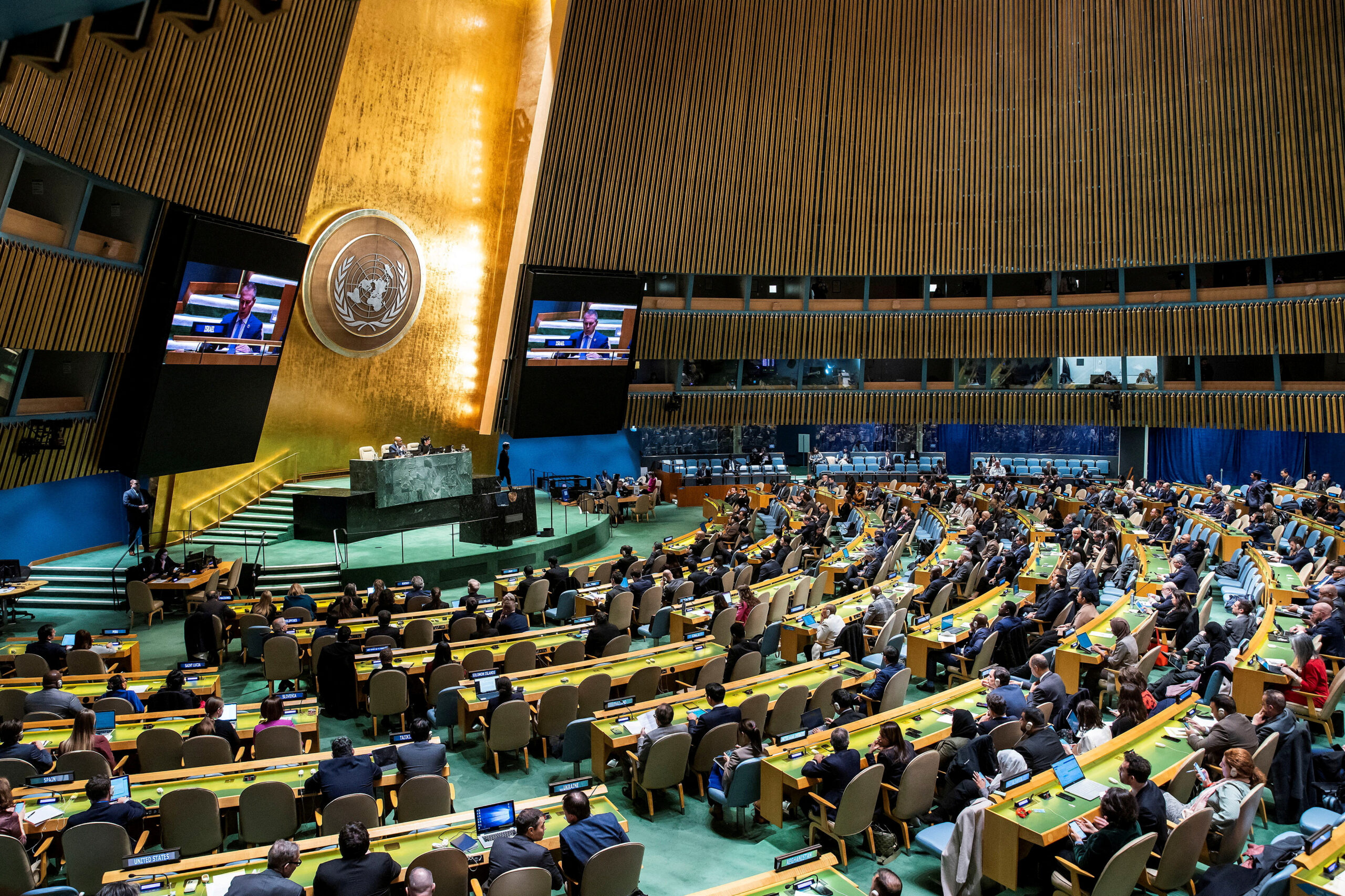5G in Africa: What’s its potential, Selasi Ahorlumegah?
Naa Oyoe Quartey
With its fast speeds and revolutionary potential, 5G stands out as a noteworthy milestone in the field of […]

The United Nations called for an immediate humanitarian ceasefire in the Israel-Hamas conflict on Tuesday. This demand came after over three-quarters of the 193-member General Assembly supported the move, which had previously been vetoed by the United States in the Security Council the previous week.
In the General Assembly vote, the United States, along with Israel and eight other countries, voted against the resolution. However, the resolution was adopted with 153 votes in favor, while 23 countries abstained from the vote.
Palestinian U.N. envoy Riyad Mansour emphasized the global pro-Palestinian protests, stating that the U.S. could no longer “ignore this massive power.” He regarded the General Assembly vote as a reflection of public sentiment and emphasized the collective duty to end the aggression against the Palestinian people.
Before the U.N. vote, U.S. President Joe Biden mentioned at a fundraising event that Israel was losing international support due to “indiscriminate bombing.” The conflict has seen Israel’s actions in Gaza, including airstrikes, a siege, and a ground offensive, in response to an October 7 attack by Hamas, according to Israel.
General Assembly resolutions, while not binding, carry political weight, reflecting the global perspective on the war. U.N. Secretary-General Antonio Guterres has consistently called for a humanitarian ceasefire.
U.S. Ambassador to the U.N. Linda Thomas-Greenfield acknowledged some aspects of the resolution that the U.S. supported but argued that a ceasefire at this time would be temporary at best and dangerous at worst for both Israelis and Palestinians.
The General Assembly resolution, demanding an immediate and unconditional release of hostages and compliance with international law, also faced failed attempts to amend the text to specifically condemn Hamas for terrorist attacks and hostage-taking.
Pakistan’s U.N. Ambassador Munir Akram argued against singling out Hamas, emphasizing that blame should be placed on both parties, especially Israel. The dire humanitarian situation in Gaza, with hundreds of thousands of people at risk of starvation, was highlighted.
The U.S. and Israel opposed a ceasefire, believing it would benefit Hamas, and instead supported pauses in fighting to protect civilians and release hostages.
The U.N.’s official coverage on yesterday’ session added that it was “a continuation of the tenth emergency special session of the General Assembly that last met on 26 October amid the present crisis in Gaza”, during which it adopted a resolution on the crisis, calling for an “immediate, durable and sustained humanitarian truce leading to a cessation of hostilities.”
The statement continued, “The emergency special session is convened pursuant to the Assembly’s 1950 landmark “Uniting for Peace” resolution, under which the body can convene an “emergency special session” within 24 hours, should the Security Council “fail to exercise its primary responsibility” for the maintenance of international peace and security.
The session convened for the first time in April 1997, following a request from Qatar. It followed a series of Security Council and General Assembly meetings regarding the Israeli decision to build a large housing project in an area of East Jerusalem.

With its fast speeds and revolutionary potential, 5G stands out as a noteworthy milestone in the field of […]

Let me take you on a captivating journey through my intriguing conversation with Antonia Azoitei, a versatile artist […]